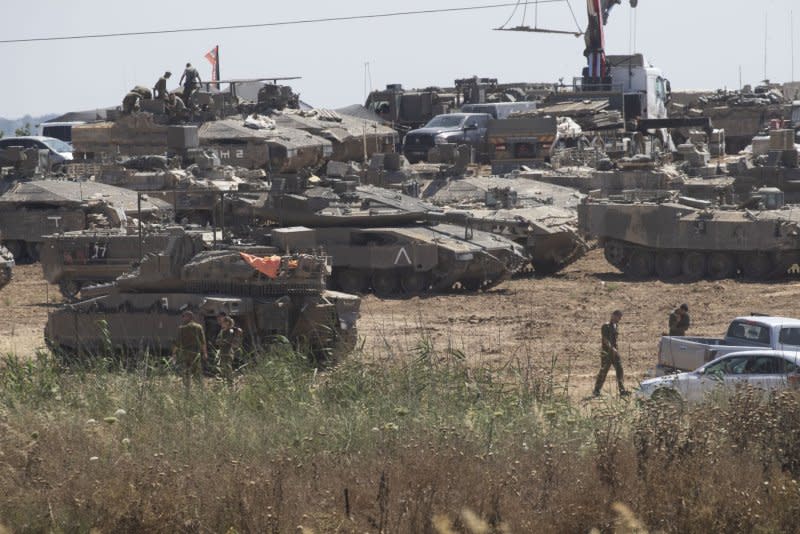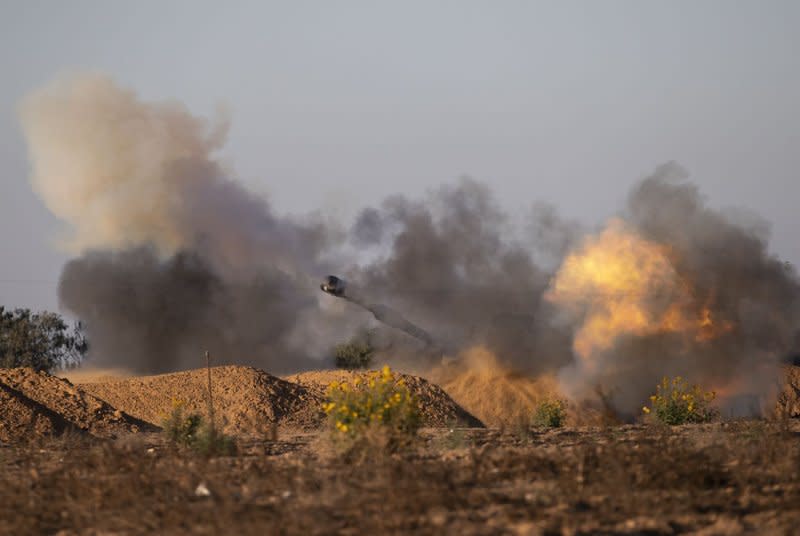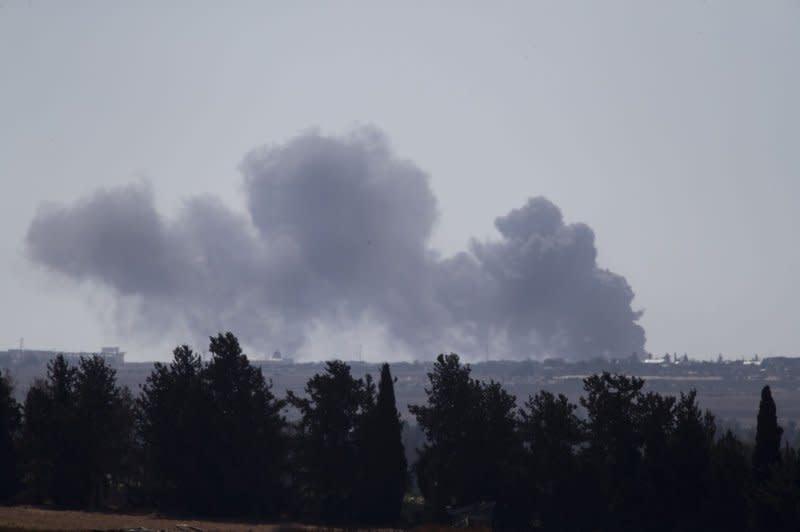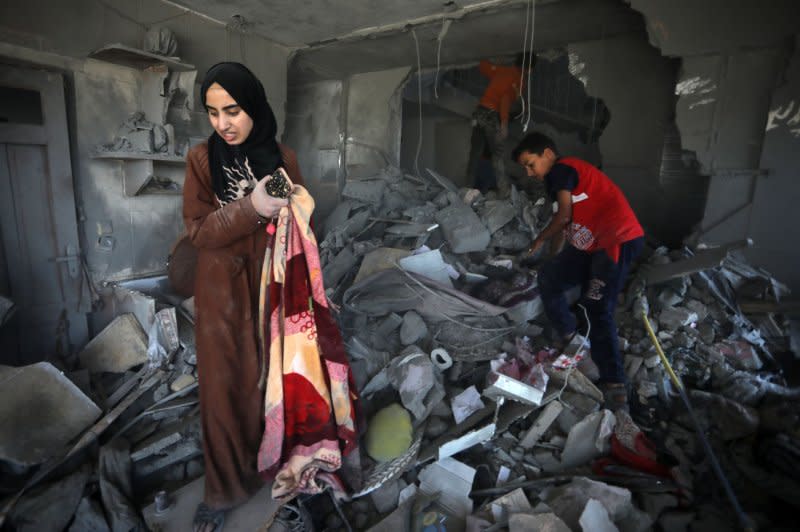U.N.: 360,000 flee Rafah; number of women, children killed in Gaza reduced by half

May 13 (UPI) -- Hundreds of thousands of people are fleeing Rafah as Israel repeated plans to invade the southern Gaza city, according to the United Nations, which reduced the number of women and children killed during Israel's ongoing war in Gaza by nearly half.
The United Nations said 360,000 people have fled Rafah under evacuation orders from Israel as it expands its military operation on the ground.
Israel has not wavered from plans to invade Rafah, where the population has soared from 234,000 to 1.4 million during the war, despite warnings from the United States about the potential for widespread civilian casualties.
"We believe Israel can and must do more to ensure the protection and well-being of innocent civilians. We do not believe what is happening in Gaza is genocide. We have been firmly on the record rejecting that proposition," White House National Security Adviser Jake Sullivan told reporters at the White House.
"We still believe it is -- would be a mistake to launch a major military operation into the heart of Rafah that would put huge numbers of civilians at risk without clear strategic gain," Sullivan said.

Last week, President Joe Biden revealed the United States planned to withhold weapons to Israel if its military invaded Rafah.
"I've made it clear that if they go into Rafah -- they haven't gone into Rafah yet -- I'm not supplying the weapons that have been used historically to deal with Rafah, to deal with the cities, to deal with the problem," Biden told CNN last week.

Israeli Prime Minister Benjamin Netanyahu has called moving his country's military offensive into Gaza, "a war with no choice."
"On Oct. 7, that black day, the murderers and their supporters danced on the blood. Today they no longer dance. They feel very well the comfort of our arms all over the Gaza Strip," Netanyahu said Monday, on Israel's Memorial Day, at the state memorial ceremony for the victims of hostilities.

"We will not stop until we topple the terror regime of Hamas. We will reckon with the perpetrators of the attack -- to the last of them," Netanyahu vowed.
ב-7 באוקטובר, באותו יום שחור, המרצחים ותומכיהם רקדו על הדם. היום הם כבר לא רוקדים. הם מרגישים היטב את נחת זרוענו בכל רחבי רצועת עזה. אנחנו לא נעצור עד שנמוטט את שלטון הטרור של החמאס. נבוא חשבון עם מבצעי המתקפה - עד האחרון שבהם. נגדע את ידם כדי שלא תונף עוד על ישראל.
דבריי בטקס... pic.twitter.com/8Lk3zijmdG— Benjamin Netanyahu - בנימין נתניהו (@netanyahu) May 13, 2024
On Monday, the U.S. State Department said it was aware of reports that a group of American medical workers was trapped in Gaza, and it urged Israel to keep the Rafah border open so foreign nationals can get out.
"We don't control this border crossing, and this is an incredibly complex situation that has very serious implications for the safety and security of U.S. citizens, but we're continuing to work around the clock with the government of Israel, with the government of Egypt to work on this issue," State Department deputy spokesperson Vedant Patel told reporters.
Meanwhile, the United Nations has reduced the number of women and children estimated to have been killed during Israel's war in Gaza by nearly half, as it questioned the data coming from the Gaza Ministry of Health, which is controlled by Hamas.
According to data published May 6, of the 34,735 people who have died in Gaza, more than 9,500 were women and more than 14,500 were children. Two days later, the United Nations reduced those figures to 4,959 women and 7,797 children killed while maintaining that the overall number of more than 35,000 deaths in Gaza remains unchanged.
"The United Nations has so far not been able to produce independent, comprehensive and verified casualty figures," U.N. spokesperson Eri Kaneko said in a statement to USA Today.
"According to the Ministry, the fatalities for whom full details have been documented include 7,797 children, 4,959 women, 1,924 elderly and 10,006 men," Kaneko said, adding that the documentation process of every casualty is still ongoing.
"Hamas wants the world to believe that the main casualties and fatalities have been women and children, an argument almost universally accepted until very recently," Elliott Abrams, senior fellow for Middle Eastern studies at the Council on Foreign Relations, wrote in a blog post.
"Now even the United Nations, or one part of the United Nations, silently acknowledges that it blindly accepted Hamas numbers meant to mislead."

